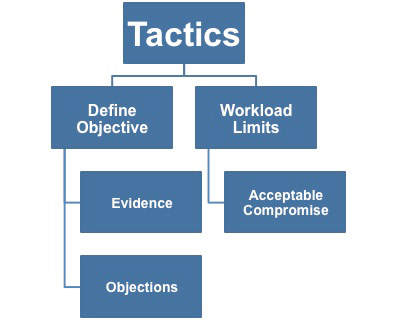Dealing With Stress at Work - Negotiating with Your Boss and Colleagues
There are two main groups you will have to negotiate your workload with: your boss and your colleagues. Whilst you may employ the same tactics for both groups, the risks are greater when negotiating with your boss.
When negotiating with colleagues, you are in the stronger position, as they are the ones seeking you out and regard you as a method of reducing their own workload! As a rule, you should not feel obliged to accept such tasks or projects unless it is advantageous to you. Some examples of how you can benefit are:
• There is mutual benefit to you and your colleague.
• You gain a promise of future help.
• Returning a past favor.
• Improves your visibility within the organization.
• Provides a unique opportunity to expand your knowledge or skill.
Your ultimate judgment should take into account how accepting this task would impact your own tasks and their deadlines. If you feel there is a significant advantage for you in performing this task and decide to accept it, ensure your terms of acceptance are clearly defined.
Negotiating with your boss is a more 'delicate' situation and there are two reasons why saying 'no' to your boss is difficult:
1) It could appear that you are refusing to do something that is a normal part of your job.
2) You may worry about giving the impression of not being as keen as your co-workers.
Both of these are valid concerns and mean that you need to go into this discussion fully prepared.
 |
You must present your reasoning for this workload reduction by constructing a sound case, which often means that you have to be prepared to conduct this discussion outside your usual comfort zone. An essential aspect of this preparation will be to anticipate and prepare for any counter arguments your boss will present to you.
This takes time and courage and it is very easy to put it off by convincing yourself that the situation will improve by itself. This is a short-sighted view as the cumulative effects of too much work usually results in either a prolonged period of absence from work due to illness, or denying jobs the necessary quantity of attention due to insufficient time, which can in itself have serious repercussions. In either case, you will be much worse off than if you tackle the underlying problem on your own terms. Our Negotiating Workload Limits eBook provides practical strategies for reducing your workload to a manageable level whilst still being seen as a hard-working and diligent manager.
Identifying the Root Cause
The first step is to get to the root cause of the issue that is causing you the biggest problem. You may need to think about this in detail in order to isolate it. Some common issues include:
 |
Continuous and unrealistic deadlines
If this is the case, ask yourself why this is happening.
Is someone else within the organization sitting on information and only making it available at the last minute?
Are decisions being put off that could be made earlier?
Is there a problem with the organization's processes that needs to be fixed?
Questions like these may take some detective work to answer but they are all common reasons for unrealistic deadlines. Other people in the organization may not realize that something they are doing, or not doing, is causing you a problem. Similarly, some organizational processes or ways of doing things may have been developed without knowing all of the necessary information and may need to be changed or updated.
Dealing with crises on a daily basis
By asking some simple questions you will better able to identify the root cause.
Why are these crises occurring?
Does senior management even know about them?
Could they be pre-empted and avoided?
It is easy to assume that senior management know what is going on in your part of the organization but that is not always the case. It may be that once attention is drawn to the problem, then the underlying problem can be addressed.
Role ambiguity and conflict
A common cause of problems is where roles are not adequately defined, which leads to uncertainty about who is responsible for doing what. A great deal of time is then wasted deciding something that should be clear from the outset. This particular problem often leads to the situation where more time is spent arguing over responsibilities than on actually completing the task.
This issue must be addressed, otherwise you will continue to create future problems for yourself, as the cause will not disappear without clear role definitions.
Inadequate support
Do you have everything you need to do your job as efficiently as possible?
This could be a tangible resource such as a piece of hardware, specific software, or additional training. It could also be something less definite: maybe someone is taking too long to get back to you with decisions.
The four issues above represent common root causes that should be relatively easy to identify once you start thinking about them. If you can identify something like this, then it will make the discussion with your manager much easier since you will be able to approach him or her with a solution to your problem, as well as the problem itself.
Unfortunately, it is also possible that none of these issues apply and that you simply are being expected to do more work than you can cope with. If this is the case, then you need to ask your boss to reduce your work schedule and distribute it to other team members, which can be rather daunting. Asking for a reduction in the amount of work that has been allocated to you is easier when you have a reputation as a hard worker.
Select Your Tactics
The most effective tactic is to restrict your discussion to a specific task or project that you can identify as causing you the worst problem. You can then plan how to put forward your case:
 |
Decide on your objective
You need to be very clear in your own mind about your desired objective, as well as being convinced that it is reasonable and achievable. You need to make a clear recommendation as to how to solve the problem.
If you merely shift the problem onto your boss, they may help you solve it, but your relationship will be strained, whereas by offering an idea for a potential solution, you'll provide a framework for the negotiation and prevent the risk of your request being mistaken for a general complaint.
Prepare your evidence
Gather evidence by keeping a time log for a few days so that you can be precise about how much time you are losing and the impact it is having on your other tasks and deadlines.
The last thing you want is for your boss to say something like 'Surely you can't be spending more than five minutes a day on that.' If you have solid data from documenting the time, then the problem can't be dismissed as trivial, particularly if you can prove an associated monetary cost.
Prepare counter arguments to the likely objections
The best way to prepare counter arguments is to look at the situation from your manager's perspective. Seeing things from your manager's viewpoint should help you to devise a solution that they will find acceptable.
Be clear about any limits you have on your workload
You will need to clearly illustrate how the additional workload will have a detrimental effect on your current priorities and objectives. You can add weight to your arguments by illustrating them in terms of the organization's objectives.
If you have family commitments or work-related goals that you are not prepared to compromise, then you will need to state them clearly. Ensure that you also raise any implications that changing your priorities to take on a new task may have.
Decide in advance what compromise you would accept
If both you and your manager are going to be happy with the outcome in the long term, then there may need to be some form of compromise. Decide in advance what issues you are likely to need to give ground on. Ask your boss to share his or her viewpoint, as this may give you new information or at least a different perspective.
It is important to construct a good case to support your argument; you should arrange your points in a clear and concise manner. You should also provide only a limited number of suggestions; providing too many invites your boss to use the weakest to undermine your whole case, without giving you the opportunity to develop counter arguments with your stronger points.
You may also be interested in:
Dealing With Stress at Work | Examining Your Own Behavior | Learning to Say 'No'.



